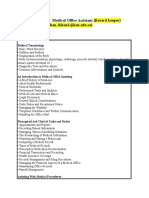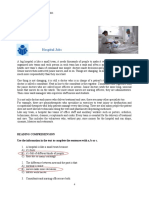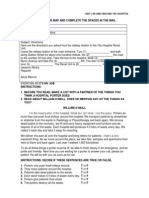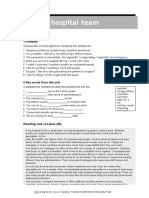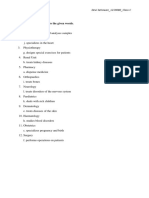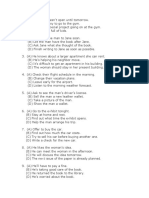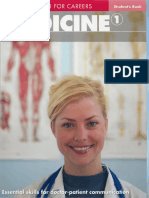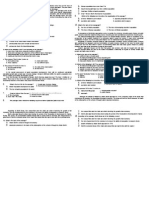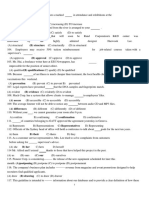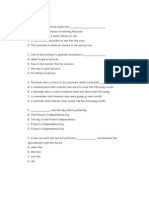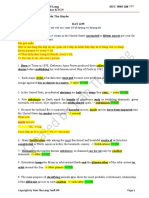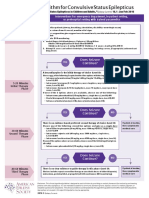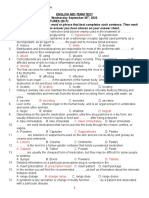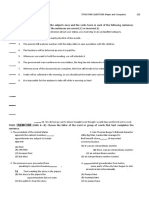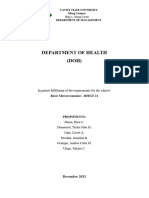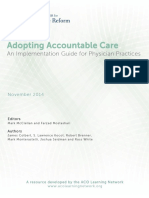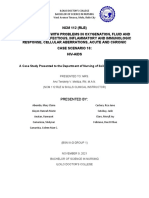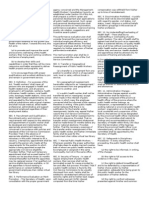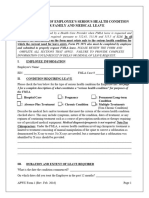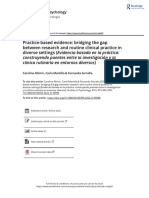0% found this document useful (0 votes)
695 views22 pagesUnit 3 Hospital Staffs and Departments: Objectives: After The Lesson, Students Will Be Able To
1. General hospitals admit all types of medical and surgical patients needing short-term care. They have organized medical staff as well as nurses, technicians, dietitians, and physiotherapists.
2. Depending on their size and location, general hospitals may have services like a pharmacy, laboratory, radiology, operating rooms, and an emergency department.
3. Larger general hospitals can have additional facilities beyond basic services, such as dental services, a premature infant nursery, organ transplantation services, renal dialysis, intensive care units, and volunteer programs.
Uploaded by
Linh TrầnCopyright
© © All Rights Reserved
We take content rights seriously. If you suspect this is your content, claim it here.
Available Formats
Download as PDF, TXT or read online on Scribd
0% found this document useful (0 votes)
695 views22 pagesUnit 3 Hospital Staffs and Departments: Objectives: After The Lesson, Students Will Be Able To
1. General hospitals admit all types of medical and surgical patients needing short-term care. They have organized medical staff as well as nurses, technicians, dietitians, and physiotherapists.
2. Depending on their size and location, general hospitals may have services like a pharmacy, laboratory, radiology, operating rooms, and an emergency department.
3. Larger general hospitals can have additional facilities beyond basic services, such as dental services, a premature infant nursery, organ transplantation services, renal dialysis, intensive care units, and volunteer programs.
Uploaded by
Linh TrầnCopyright
© © All Rights Reserved
We take content rights seriously. If you suspect this is your content, claim it here.
Available Formats
Download as PDF, TXT or read online on Scribd
/ 22





